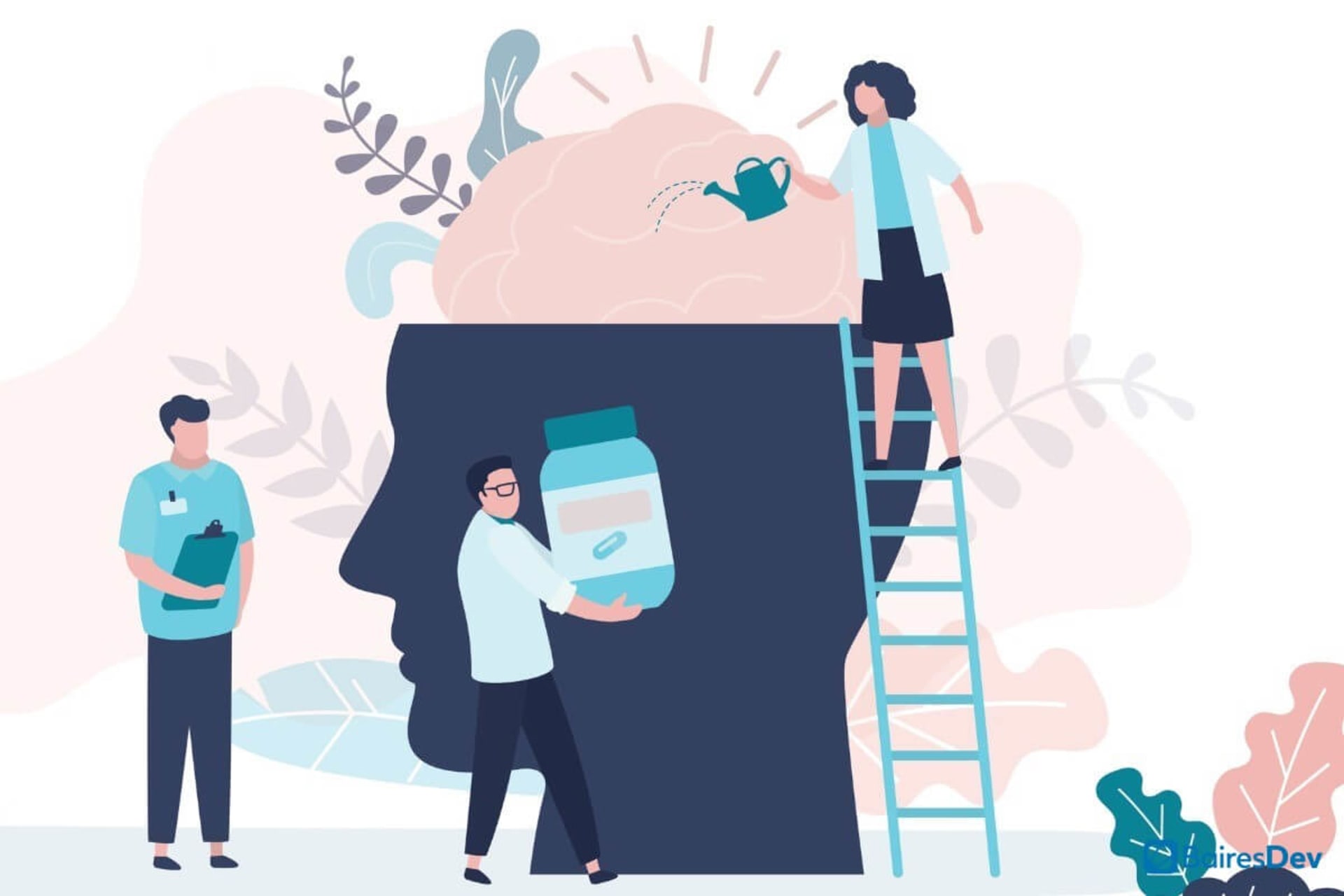More than 90% of workers in the tech sector report having been diagnosed with a mental health disorder, according to the OSMI Mental Health in Tech Survey. Nearly 64.7% of respondents said their productivity has been affected by a mental health issue.
Tech culture has long faced criticism for taxing the mental health of its workers. Burnout is all too common in the industry, and the pandemic has only exacerbated problems like isolation and a lack of work-life balance.
Can the culture change and better support the people who shape and comprise it?
The Problem
The world of technology is known for attracting some of the best and the brightest. Many talented individuals flock to the Big Five — Amazon, Apple, Facebook, Google, and Microsoft — or startups, where they can play a foundational role in bringing innovative ideas to life.
Many of these companies incentivize their employees to work long hours with perks like catered meals and on-site gyms. But the flip side of this is the demands they place on workers, with a grueling, rigorous environment that stresses individuals and pushes them to their limits. Despite promises of flexible hours and, in some cases, unlimited PTO, employees are rarely able to take advantage of time off, given the pressure and competitive nature of the industry.
All this, along with often-rigid structures and other problems, can take its toll on people. And their mental health suffers as a result. Anxiety, burnout, depression, and isolation — all with problems related to physical health, such as a lack of sleep — are not uncommon in tech. Unfortunately, there’s also a stigma associated with mental health problems.
“Mental health has been one of the least discussed subjects in the corporate world,” says Naveen Bhateja, Chief People Officer of Medidata Solutions. “The tech industry adds another layer of complexity when taking into consideration the mental health discussion. The tech industry fosters a ‘crunch’ culture where demanding work must be completed in a short amount of time. The industry is known for high-stress: late nights, abnormal hours, and tight deadlines, all while being constantly available at any time of day.”
Of course, the pandemic added another layer on top of the existing challenges. A report from AppDynamics found that 8 in 10 technologists said their jobs became even “more complex” in 2020, when the pandemic took hold, with 89% saying they felt enormous pressure at work.
The Solution
1. Normalize Conversations About Mental Health
Awareness is the first and most critical part. In the tech sector, too often, we’re not having the important conversations about mental health. The same OSMI survey found that less than a third of employees said they would be comfortable discussing mental health concerns with their direct manager. This is problematic — these conversations should not only be acceptable but encouraged.
By creating a safe space to discuss mental health issues, organizations can ensure that their employees feel comfortable and heard.
2. Establish Comprehensive Wellness Benefits
Mental health initiatives should be foundational to any organization’s strategy. Wellness benefits are a concrete way for a business to support mental health. But remember that it’s not enough to offer generous vacation time — you must also encourage your employees to actually use it. Moreover, ensure that employees have access to services like therapy at no cost or a reduced cost.
Another important measure, one that many organizations across industries have had success with, is establishing employee resource groups (ERGs). ERGs are groups with employees who have shared interests, demographics, or other commonalities, where they can create communities and discuss challenges, as well as implement meaningful change.
3. Train Leaders and Managers to Recognize the Signs of Mental Health Problems
It’s important for leaders to recognize the signs of mental health problems before they escalate. Otherwise, their employees could succumb to burnout — or worse.
Tech organizations should train their managers and lower-level employees to notice mental health challenges, using the help of professionals. They should be well-equipped with the resources to spot and offer resources to their employees and colleagues.
4. Ask Employees What They Need
Data is the foundation of any mental health strategy — any STEM business and professional knows that. How do you gather that data? Go straight to the source. In this case, that means your employees themselves.
Ask your employees what they need for support. Perhaps you might distribute an anonymous survey, for example. This can also be used to assess your workers’ top priorities and mental health concerns. This will go a long way in fostering a culture of belonging and awareness. Mentally healthy workers mean a healthy organization.
Why Should We Work to Address Mental Health in Tech Culture?
The most obvious reason why we must address mental health challenges in tech culture is human empathy itself — we want workers to be safe, happy, and fulfilled. This is intrinsic to our success as an industry.
But there are motivations beyond this, ones that benefit your company. When you have workers who don’t feel supported and are experiencing challenges like anxiety, depression, and burnout, you will inevitably face myriad problems as an organization — presenteeism, absenteeism, and attrition, for instance.
Investing in mental health, on the other hand, leads to better outcomes for organizations, including stronger retention rates. Training and awareness-raising programs targeting mental health generate ROIs of 6:1 and 5.3:1 respectively, according to Deloitte’s 2022 Mental health and employers: The case for investment — pandemic and beyond report.
Clearly, there is a strong case for better support of employees and their mental health. This isn’t just intuition — the data supports the argument. During a period of high turnover, when many talented individuals are looking for employers that look out for their interests, you can’t afford to fall short of their expectations.






